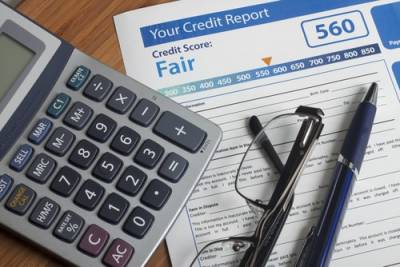How to Rebuild Your Credit After Bankruptcy
 Debt can be a serious issue that affects you and your family, and financial problems can have a significant impact on your credit. Missed payments can lower your credit score. If bankruptcy becomes necessary to wipe out debts and provide your family with a fresh financial start, this will not only cause your credit score to decrease further, but the bankruptcy will remain on your credit report for several years. A low credit score and a previous bankruptcy filing can affect you in multiple ways, including by making creditors less likely to grant credit or approve you for loans that will let you purchase a home or vehicle. Fortunately, there are things that can be done to increase your credit score after you complete the bankruptcy process.
Debt can be a serious issue that affects you and your family, and financial problems can have a significant impact on your credit. Missed payments can lower your credit score. If bankruptcy becomes necessary to wipe out debts and provide your family with a fresh financial start, this will not only cause your credit score to decrease further, but the bankruptcy will remain on your credit report for several years. A low credit score and a previous bankruptcy filing can affect you in multiple ways, including by making creditors less likely to grant credit or approve you for loans that will let you purchase a home or vehicle. Fortunately, there are things that can be done to increase your credit score after you complete the bankruptcy process.
Methods of Increasing Your Credit Score
Rebuilding credit after bankruptcy requires time and effort, but it can be done. The first step is to make sure all debts included in the bankruptcy have been discharged. You may want to check your credit report and make sure all information is accurate and up to date. Once this has been confirmed, the next step is to begin re-establishing credit by demonstrating financial responsibility. Some methods of doing so include:
-
Pay bills on time - One of the best ways to improve your credit is to make sure all payments, such as the monthly costs of utilities or other services, are paid on time. Establishing a good payment history is essential to increasing your credit score. Creating a workable budget and sticking to it will help you better manage your finances and avoid falling back into debt. It can also help you save money for emergencies.
-
Avoid taking out new loans or creating new debts - After discharging previous debts through bankruptcy, it is important to avoid taking on new debt. This will help you avoid falling back into a difficult financial situation and ensure that you will not be seen as a risk by creditors.
-
Get a secured credit card or be added as an authorized user - A secured credit card is one that is backed by a deposit made to the credit card company. Making small charges to this type of card and paying them off each month will help increase your credit score. If a family member or other loved one adds you as an authorized user on their card, this can also help your credit score increase.
-
Start a credit-builder loan - Banks may offer certain types of loans that are meant to help you save money and increase your credit score. You may either borrow against money that you have already saved, or you may make ongoing payments that will be held in a savings account and made available to you after the loan has been completed. This will not only demonstrate that you can make ongoing payments, but it will help you build savings.
-
Find a co-signer for new loans - If you are seeking a new loan, such as for a car or home, you may be able to find someone who is willing to co-sign the loan with you. This will help increase your chances of being approved for the loan, and making regular payments toward the loan will help improve your credit score.
Contact Our Parker County Debt Relief Attorneys
If you are struggling with debt, bankruptcy may be the best option for you and your family. The attorneys at Acker Warren P.C. can help you understand your options, and we will advise you on the steps you can take to rebuild your credit after bankruptcy. Contact our Wise County bankruptcy lawyers today at 817-752-9033 to schedule a free consultation.
Sources:
https://www.forbes.com/advisor/credit-score/rebuilding-credit-after-bankruptcy/









